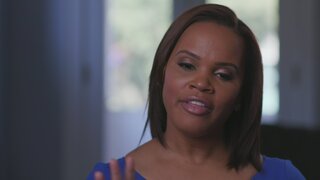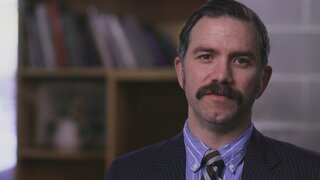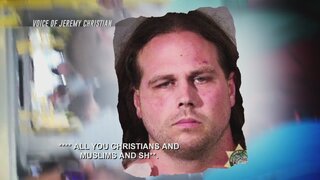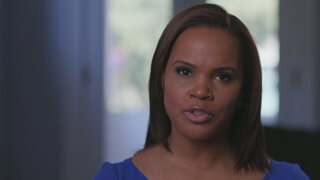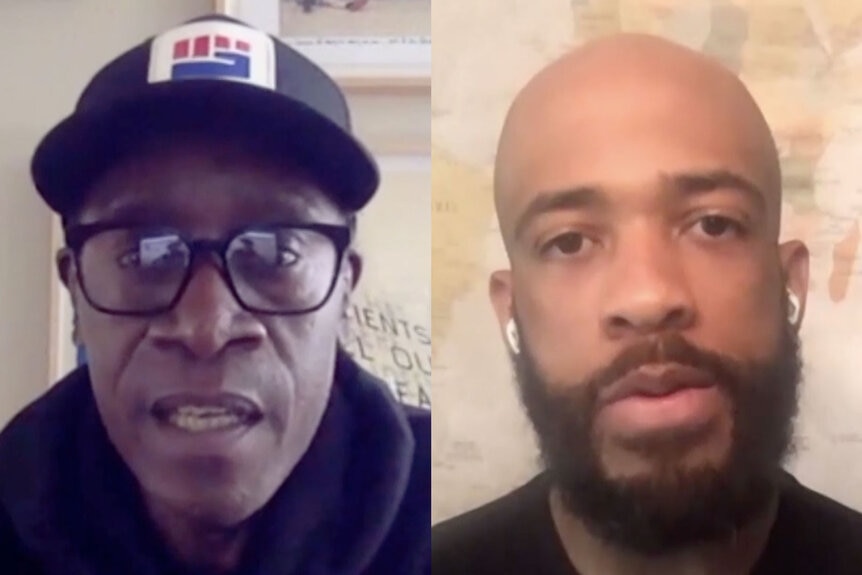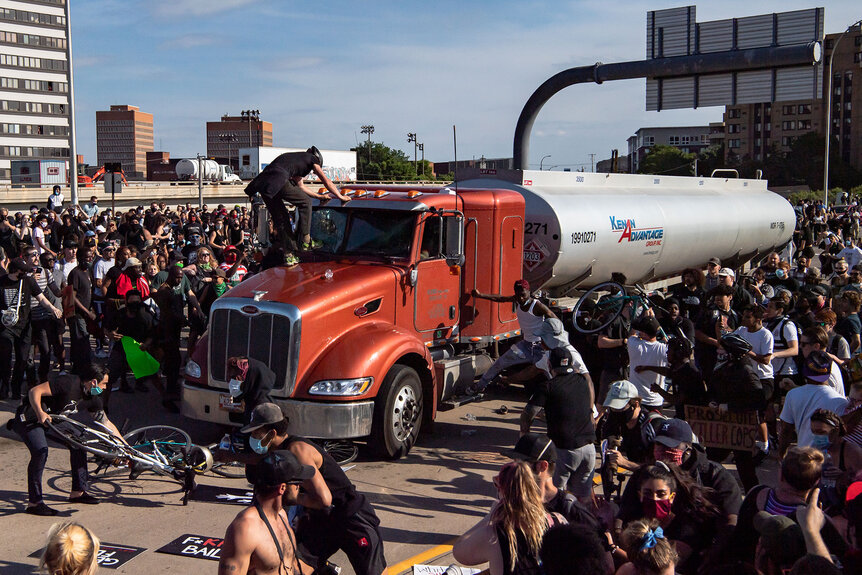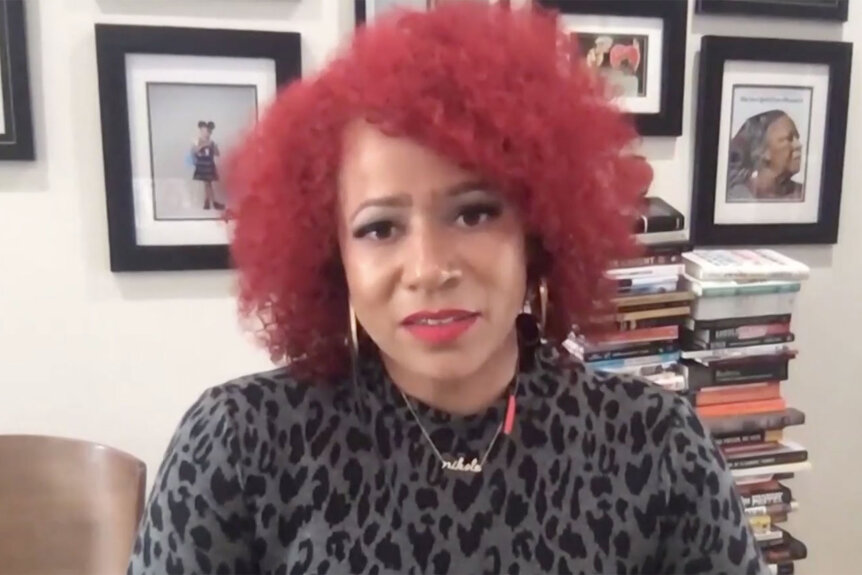Create a free profile to get unlimited access to exclusive videos, breaking news, sweepstakes, and more!
'We’ve Got To Snap Out Of It,' Activists Say Inaction Towards Racism Has To Stop As America Erupts In Protests
Wisconsin Lt. Governor Mandela Barnes and actor Don Cheadle discussed whether or not they think America can dismantle its ingrained systemic racism.
As Americans take to the street to fight against racial injustice, activists say the country has to work hard to break away from systemic racism before it’s too late.
The May 25 killing of George Floyd in Minneapolis served as the catalyst for widespread protests and unrest across America over the last week. The African-American man was unarmed and lying down on a city street handcuffed when white arresting officer Derek Chauvin put his knee onto his neck. Video captured the incident, which appeared to show the officer keeping his knee on Floyd’s neck for close to nine minutes, even after Floyd became unresponsive. Floyd’s death was classified as a homicide by an independent medical examiner on Monday.
While three other officers were present during the incident, the only one charged so far has been Chauvin. He was charged with third-degree murder and second-degree manslaughter for Floyd's death hours after the Minneapolis Police Department was torched during local unrest on Friday.
The majority of Americans currently sympathize with the protests, which indicates a major shift in public opinion, Reuters reported Tuesday. As “Can You Hear Us Now,” — a special NBC conversation about the events hosted by MSNBC'S Trymaine Lee — pointed out on Tuesday evening, there hasn’t been this much unrest since the 1960s when demonstrations erupted in over 100 cities following the assassination of Dr. Martin Luther King. Since that unrest led to major social change, could today’s protests as well?
Lee noted in the special that America is a country which was “founded on racist ideals and while great progress has been made the roots remain the same.”
He asked Wisconsin Lt. Governor Mandela Barnes, one of the conversation’s guests, if he thinks that white supremacist ideals and engrained anti-blackness, which Lee said are baked into every American institution including policing, can be broken.
Barnes said they must be broken.
“We’ve got to snap out of it,” Barnes told Lee. “If we don’t snap out of it, we’re going to be completely destroyed. This nation will implode if we don't step out of the white supremacy ideology which got us to the point of where we are.”
He added that he fears social unrest could get worse if people don’t take action immediately.
“It is my hope that people step up and recognize the moment is here for change,” he said, adding ‘‘if we don’t snap out of it, it will only be to our own peril.”
New York Times journalist Nikole Hannah-Jones, another “Can You Hear Us Now” guest, said it technically can be done, though she did express that “can and will are two different things."
"Yes, we absolutely can, we know all of the resources that went into creating the inequalities that we see and experience but do we have the will?” she asked. “White people have to be able to give up their whiteness and I don’t think that we have seen enough white Americans in power willing to do that.”
She said the black community notably suffers the most in most aspects of life: education, healthcare, poverty and unemployment rates.
“Do we have the will to actually do what is necessary?” she asked. “I don't think so, but we certainly can if we choose. We just sent someone to the moon again. If we wanted to do something better, we could.”
Actor Don Cheadle said that both unconscious bias and conscious, which he said plagues the nation, hold America back from achieving racial equality.
“People do not realize that they have these biases,” he said.
He said now, in light of the nationwide unrest, they are starting to finally fully open their eyes.
“My friends are really realizing it now,” he said. “It’s really coming out now and they are really understanding the impact of inaction.”
Cheadle said that people can no longer think that just “because they’re good people and they do good things during the day and they are nice to people that that’s actually enough to tear down something has been systematic and has been not only institutionalized but it’s quantified in the articles of articles of the creation of this country.”
He said that this moment in history, the protest and the change in general public opinion, is the cultivation of many moments coming together. Barnes noted that white “people are waking up to a reality that they have never experienced.”
Cheadle said that white people must face America’s racism and the racism within themselves head on.
"If powerful white people aren’t willing to have these kinds of conversations and hold each other accountable for that [...] I don’t know how this will change but this is absolutely the moment to impress upon them that it has to,” he said.
If America fails to do so, Cheadle warned “we are looking at a very bad outcome.”
He noted that the infamous 1992 Los Angeles riots only occurred after the policemen in the Rodney King case were acquitted of beating him. He said Chauvin's case hasn’t even made it to trial yet.
‘"We may not be at the greatest point of this yet and that’s terrifying,” the actor and activist stated.
While the panel questioned if America had the courage and strength to fix some of its longstanding racial issues, they all expressed hope that it might. This moment in time does indeed show glimmers of hope.
“It’s going to be a fight and it’s going to be a struggle,” Cheadle told Lee.
To watch the entire conversation, click here.
